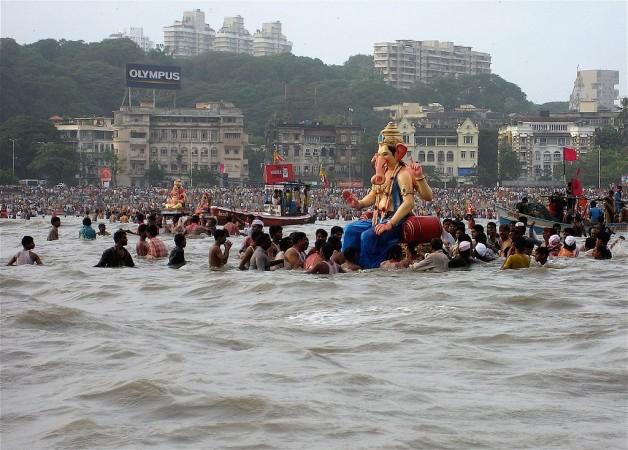In view of looming fears of the onset of the possible third wave of Covid-19 with back-to-back festivals lined up in the auspicious month of 'Shraavana' (August-September), Karnataka on Thursday banned all large scale religious, cultural and entertainment congregation and processions of people.
All district authorities have been given a free hand to decide on enforcing restrictions locally on the festive days. A fresh set of elaborate restriction guidelines for the celebration of festivals, especially all kinds of processions associated with both festivals of Muharram and Gowri-Ganesha festival, have been issued.
Usually, devotees of respective communities observe the festivities at least 10 days in a row and both of these festivals attract a large number of devotees and processions by respective communities.
As per these new guidelines, the state government stated that all prayers associated with Muharram shall be held at Masjids (mosques) strictly adhering to Covid rules. For Muslims, Muharram is considered to be the second holiest month after Ramzan, and also the first month of the Islamic Year or the Hijri calendar.

The Muslim society's two major sects Shias and Sunnis observe the tragedy of Hussain martyrdom in the battle of Karbala in a contrasting manner. Shias take out street processions self-flagellation at various locations, while Sunnis do so to a much lesser extent, storytelling, weeping and taking out processions but do not indulge in self-flagellation.
Ganesh Chaturthi Pandals Banned
The state government has enforced similar stringent restrictions by banning the public celebration of the Ganesha Chaturthi by setting up pandals. "People must celebrate the festival in their homes and no procession will be allowed while bringing the Ganesha idol or during the immersion of the idols," the order stated.
The 10-day Ganesha festival begins with the consecration ceremony (first day) and on the last day of the festival, which is popularly known as Ganesh Visarjan/Nimajjinam takes place which is also is also popularly known as Anant Chaturdashi.
On both occasions, devotees come in hordes to witness the installation of Lord Ganesha and during his immersion ceremony, devotees gather in large numbers. Lord Ganapati's idol immersion takes place in a river, sea, or water body.
When is Gowri-Ganesh Habba 2021?
Gowri Habba, also known as Ganesh Gowri festival, is celebrated a day before Ganesh Chaturthi.
This year the festival will be on 10th September. On the day of Gowri Habba, both married and unmarried women worship a golden image of Goddess Gowri (Parvati), wife of Lord Shiva and mother of Lord Ganesha.
It is believed that on the day of the celebration, also known as Swarna Gowri Vratam, Goddess Gowri comes to earth like any other married girl who visits her parents' house and the next day, her son Ganesha comes to take her back to Kailasha.












